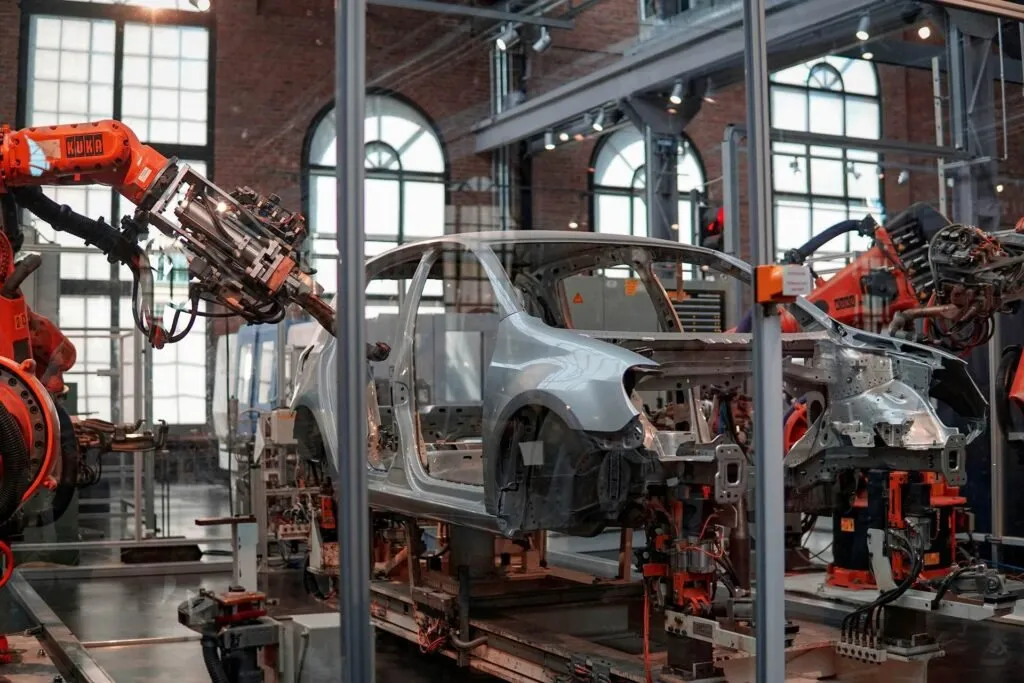Impact of Technological Advancements on Automobile Production in Vietnam
Vietnam’s automotive sector is undergoing a dramatic transition driven mainly by technology breakthroughs. As the country strives to bolster its manufacturing capabilities and compete on a global scale, the integration of modern technologies into automobile production has become a focal point. This article explores the impact of these technological advancements on Vietnam’s automobile production, highlighting the challenges and opportunities that arise in this evolving landscape.
Technological Integration and Its Impact
- Enhanced Manufacturing Processes: The adoption of advanced manufacturing technologies such as automation, robotics, and AI has revolutionized automobile production in Vietnam. These technologies improve precision, reduce production time, and minimize errors, resulting in higher quality vehicles. For instance, the use of robotics in assembly lines ensures consistent and efficient production, which is crucial for meeting the increasing demand for automobiles.
- Supply Chain Optimization: Technological advancements have significantly improved supply chain management within the automotive industry. Real-time tracking systems, IoT devices, and data analytics enable manufacturers to monitor and optimize every aspect of the supply chain. This leads to better inventory management, reduced lead times, and cost savings. For Vietnam, where supply chain disruptions have been a significant challenge, these technologies offer a way to enhance resilience and efficiency.
- Electric Vehicle (EV) Production: The global shift towards electric vehicles is gaining momentum in Vietnam as well. The debut of the Wuling HongGuang Mini EV, produced by TMT Motors in partnership with the US-China joint venture SAIC-GM-Wuling, in 2023 marked a significant milestone in the country’s automotive sector. Technological advancements in battery technology, charging infrastructure, and vehicle design are pivotal in supporting the growth of EV production. As the government pushes for greener transportation solutions, the automotive industry is increasingly focusing on developing and manufacturing electric vehicles.
- Improved R&D Capabilities: Investments in research and development (R&D) have become essential for staying competitive in the global automotive market. Vietnamese manufacturers are now leveraging advanced simulation tools, computer-aided design (CAD) software, and virtual prototyping to innovate and develop new vehicle models. These tools enable faster product development cycles and reduce the costs associated with physical prototyping.

Challenges in Technological Adoption
- High Initial Costs: The integration of advanced technologies requires substantial investment, which can be a barrier for many local manufacturers. The costs associated with acquiring new machinery, training personnel, and upgrading facilities can be prohibitive, particularly for small and medium-sized enterprises (SMEs).
- Skill Gap: A significant challenge in adopting new technologies is the existing skill gap within the workforce. The automotive industry requires skilled technicians and engineers who are proficient in handling advanced technologies. Bridging this skill gap through targeted training programs and educational initiatives is crucial for maximizing the benefits of technological advancements.
- Regulatory Hurdles: Navigating the regulatory landscape is another challenge that manufacturers face. Ensuring compliance with both local and international standards for automotive safety, emissions, and technology use can be complex and time-consuming. Streamlining regulatory processes and providing clear guidelines can facilitate smoother technological integration.
Opportunities for Growth
- International Collaborations: Forming strategic partnerships with international automotive giants provides Vietnamese manufacturers access to cutting-edge technologies and best practices. For instance, Thaco Group’s partnerships with brands like Kia and BMW have enabled the company to enhance its technological capabilities and expand its market reach.
- Government Support: The Vietnamese government’s supportive policies, such as tax incentives and subsidies for technology adoption, play a crucial role in encouraging manufacturers to invest in new technologies. Continued government support can help offset the high initial costs and drive wider adoption of advanced technologies.
- Expanding EV Market: The growing focus on electric vehicles presents a significant opportunity for the Vietnamese automotive industry. By investing in EV technology and infrastructure, manufacturers can tap into a burgeoning market segment and position themselves as leaders in sustainable transportation.
Conclusion
Technological advancements are reshaping the landscape of automobile production in Vietnam. While challenges such as high costs and skill gaps exist, the opportunities for growth and development are immense. By leveraging advanced manufacturing processes, optimizing supply chains, and focusing on electric vehicle production, Vietnam’s automotive industry is poised to make significant strides on the global stage. As Vietnam Automotive Consulting experts, we recognize the importance of embracing these technological changes to drive the industry forward.






